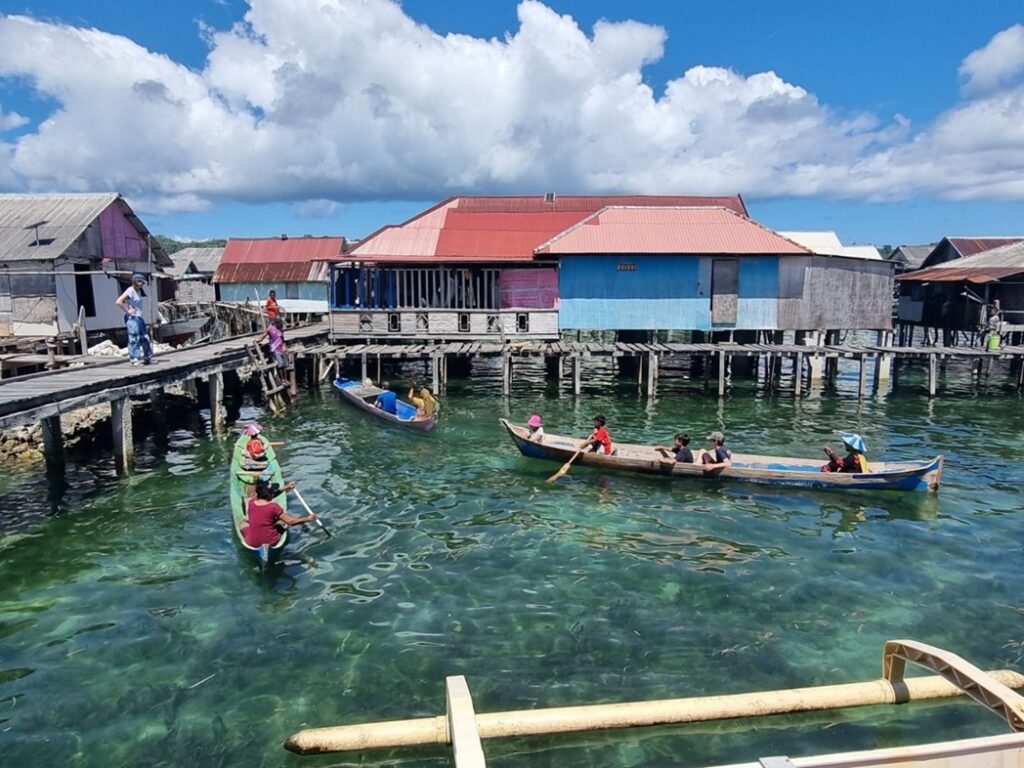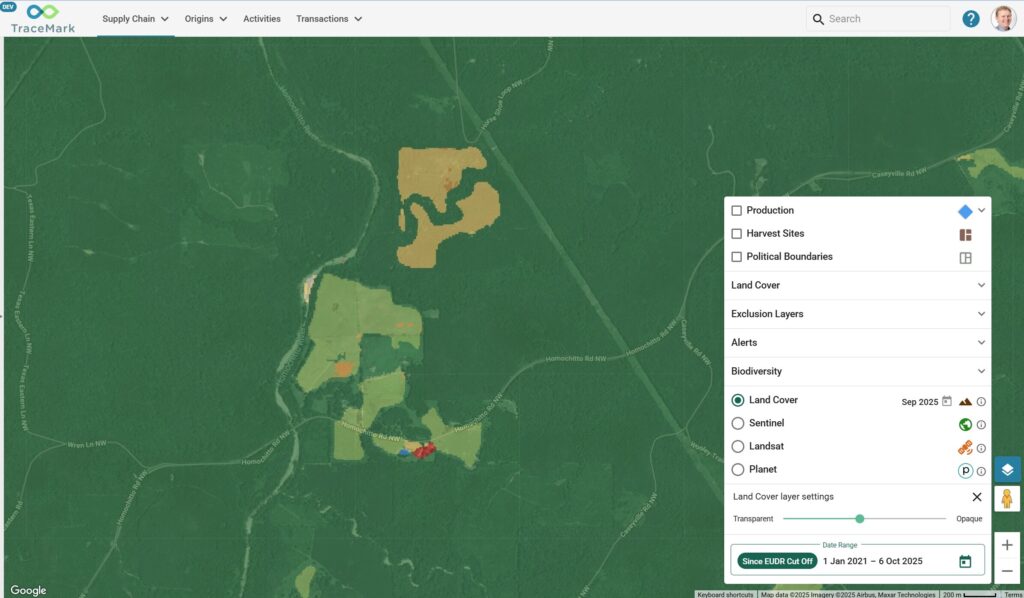NGIS joins forces with Textile Exchange to help fashion brands make more sustainable sourcing choices
NGIS is excited to announce its collaboration with Textile Exchange to drive more responsible sourcing practices through the Materials Impact Explorer (formally known as Global Fibre Impact Explorer).
Created by Google and WWF in 2019, the Materials Impact Explorer was designed to help fashion brands make more sustainable sourcing decisions. The primary goal of the tool is to identify high risk fibre in brands’ portfolios and then guide them to recommendations on how to support local initiatives to improve their environmental impact.
Built on Google Earth Engine and using Google Cloud computing, the Materials Impact Explorer assesses the environmental risks of various fibres across regions, including factors such as air pollution, biodiversity, climate change, greenhouse gases, forestry, and water use. The tool then allows brands to view a range of different fibre options and uncover actions they could take to mitigate risks.
Why sustainability is important
Most of the materials used for fashion, textile and apparel come from farms, forests or fossil fuels. It is estimated that 24% of the fashion industry’s carbon footprint comes from its raw materials.
However, the fashion industry is about to go through a sustainability overhaul. The European Parliament, for example, has recently passed a law to ban imports of raw materials that have been linked to deforestation. This is part of the European Green Deal, which sets out a legal pathway for Europe to achieve carbon neutrality and to transform the EU into a competitive and resource-efficient economy.
The partnership helping with sustainable fashion sourcing
The Materials Impact Explorer was originally developed through a collaboration between WWF and Google, with the aim of helping fashion brands in making sustainable choices. This technology provides brands with precise and comprehensive information, allowing them to make decisions about the sourcing of their raw materials and effectively reduce the environmental impact and create beneficial outcomes in their existing supply chains. By using the expertise of renowned environmental specialists, the data framework and assessment behind this tool have been further enhanced, taking significant strides towards reducing the environmental impact of the fashion industry.
At the end of 2021, Textile Exchange acquired the Materials Impact Explorer and has since continued to review, update, and plan for the public launch. During this time, Textile Exchange partnered with NGIS to deliver the technical functionality of the tool. NGIS is donating its services to ensure the product is released in 2023.
The Materials Impact Explorer stands out for its unique scope and reach, holding immense potential to guide the apparel industry towards sustainability. In addition to assessing environmental risks, the tool will provide brands with country specific recommendations for reducing risks, including opportunities to collaborate with farmers, producers, and communities.
About NGIS
At NGIS we are committed to making a positive impact and helping our clients invest in a more sustainable future. We use software and data to tackle issues such as sustainable development, biodiversity and conservation, preservation of Indigenous rights and interests, climate change and disaster risk reduction.
With our own sustainable sourcing solution, TraceMark, we are helping deliver traceability and transparency in global supply chains with a data driven approach to sustainable sourcing raw materials. With increased policy measures and consumer demand for sustainable products, TraceMark delivers global sustainability and deforestation monitoring for the sourcing of raw materials.
Find out more about the Materials Impact Explorer and how NGIS can help.
Related Articles
Here are more related articles you may be interested in.







